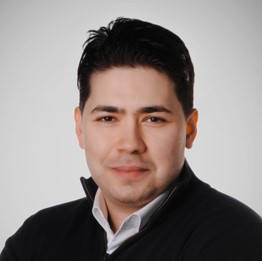Optimizing Unconventional Wells: Plunger & PAGL/GAPL Strategies
Course Description
The course provides a comprehensive overview of artificial lift methods to remediate liquid loading for unconventional wells, with a particular focus on plunger lift and PAGL/GAPL applications. Understanding the plunger lift hydrodynamics is vital to designing and optimizing plunger lift wells. Instead of relying on the rule of thumbs, engineers are encouraged to design and optimize plunger-lifted wells based on mechanistic and data-driven models. Understanding continuous gas lift, determining when to deploy plungers, the transition of gas lift, PAGL and GAPL, surveillance and automation topics are explored.
Learning Level
Intermediate to Advanced
Course Length
1-day
Why Attend
Objectives:
• To gain a comprehensive understanding of artificial lift methods, with a particular focus on plunger lift and gas lift technologies.
• To develop the ability to design, optimize, and monitor plunger lift systems to maximize production, reduce gas injection and maintain well integrity.
• Practicing plunger lift mechanistic models and how to use
Who Attends
• Production engineers, facilities engineers, and data scientists that are responsible for conventional and unconventional wells production and surveillance.
• Reservoir, completion, field and asset supervisors, and managers interested in improving the performance and reducing the emissions and costs related to gas lift for unconventional assets while learning about liquid loading and plunger lift.
Special Requirements
Prerequisites: Attendees should be knowledgeable about petroleum production, preferably with a BSc degree or at least two years of experience.
CEUs
0.8 CEUs (Continuing Education Units) are awarded for this 1-day course.
Cancellation Policy
All cancellations must be received no later than 14 days prior to the course start date. Cancellations made after the 14-day window will not be refunded. Refunds will not be given due to no show situations.
Training sessions attached to SPE conferences and workshops follow the cancellation policies stated on the event information page. Please check that page for specific cancellation information.
SPE reserves the right to cancel or re-schedule courses at will. Notification of changes will be made as quickly as possible; please keep this in mind when arranging travel, as SPE is not responsible for any fees charged for cancelling or changing travel arrangements.
We reserve the right to substitute course instructors as necessary.
Instructor

Ozan is co-founder of Plunger Dynamics and leads the development of software solutions, data-logging plunger, experimental and field plunger lift studies for operators. Ozan has conducted PAGL research programs, consulting projects and developed mechanistic models for plunger lift which includes fall and upstroke mechanics of the plunger, and liquid unloading process. He has published journal papers and made presentations at various conferences and workshops, about plunger lift and plunger assisted gas lift.
Ozan is serving as a section officer of SPE Artificial Lift and Gas Well Deliquification Technical Section. Previously, he worked as an engineering consultant for a contractor of the ARPA-E (US Department of Energy) project, and Chevron’s R&D project of acoustic downhole liquid deliquification tool.
Ozan holds a BSc degree in Mechanical Engineering at Istanbul Technical University (2016) and an MSc degree in Petroleum Engineering at the University of Tulsa (2019).
19 Aug 2024
The Woodlands, Texas, USA
Held in conjunction with SPE Artificial Lift Conference and Exhibition - Americas
Before 23 July
USD 550 Member
USD 750 Nonmember
23 July-12 August
USD 650 Member
USD 850 Nonmember
After 12 August
USD 750 Member
USD 950 Nonmember
Questions?
trainingcourses@spe.org
